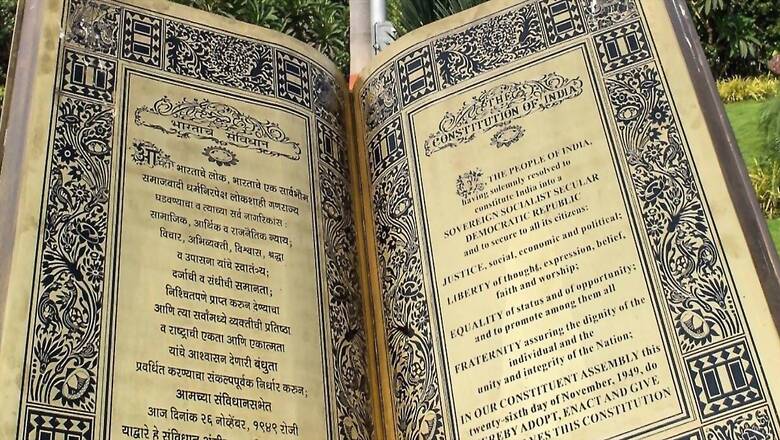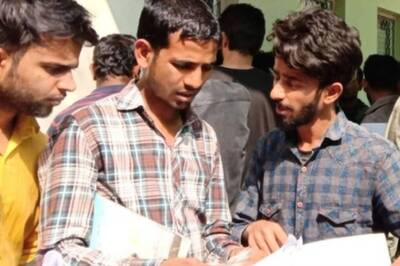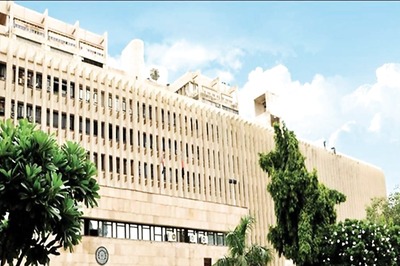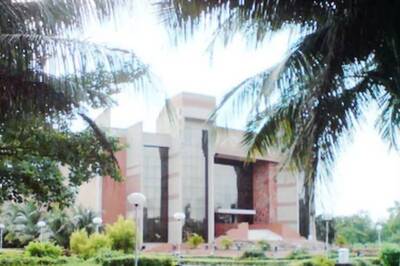
views
The idea of this musing that is about to be articulated will pique many, affront some, and seem plausible to a handful few. The two buzzwords—Hindutva and the Constitution—have pre-defined and putative pre-conceived notions and proclivity affixed to them, where one is ascribed to be a cuss word, while the other is the fledgling plank of the current polity.
This election it was pushed as one of the major, if not the only, narratives that the Constitution needs to be saved! Nobody asked from whom. Assuming it is from the supposed Hindutva forces led by Prime Minister Narendra Modi and the BJP, which are deemed to be fascist forces. While this very Constitution safeguards the rights of 140 crore Indians, empowering their rights and duties, as well as the federal structure, the integrity, and the sovereignty of this land, it was peddled that this very safeguard needs saving.
Coming back to the buzzwords, one at a time, Hindutva has been fed to this generation as the agreeable variant of Hinduism. It is plausibly argued that Hinduism is all-encompassing, passive, and non-violent in originality, while Hindutva is its fascist variant, politically armed and used by the RSS and the BJP. Nothing could be as far from the truth as this very specious notion.
Hindutva is defined as a political movement advocating Hindu nationalism and the creation of a Hindu state, as well as an ideology or movement trying to establish Hindus and Hinduism as the official faith in India. Of course, this is from a Western perspective. In reality, ‘tatva’ refers to the “essence of a principle,” whereas “ism” denotes a closed book of thinking, a set of dogmas, or a rigid belief system. Thus, Hindutva is a way of life rather than a religion. Rather, in literal translation, Hindutva is the “Hinduness”. It refers to the indigenous philosophy, spirituality, and belief system of India, known as Bharat.
Hindutva also does not lead to God. It does not give precedence to any single scripture or path. A Hindu can question, embrace, or reject the authority of the Vedas, much as Jains, and yet be a proud Hindu. Hindutva is all-encompassing and embodies tolerance, freedom of opinion, choice, and expression. It is not an ‘only-ist’ belief system or faith, but rather a philosophy that supports ‘also-ism’. With complete certainty, one can claim that no faith or ideology that opposes or restricts individual freedom or rights can be considered Hindutva.
Now that one word is dealt with in brevity, let us consider mulling upon the foundational core and purpose of the Constitution. The Constitution is a comprehensively drafted rulebook that prescribes how the democracy and republic of India, that is Bharat, ought to function. It is not dead meat but a living document that is evolving and adapting sans any restrictions and dogma in an ideal situation. It gives us, a billion Indians, the right to equality, the right to freedom, the right against exploitation, the right to freedom of religion, the right to culture and education, and the right to constitutional remedies that include unimpeded equity in availing justice. This “non-exclusive, emerging, and evolving” nature of the Constitution quantifies it with Hindutva.
The first amendment to the Constitution—the Constitution (First Amendment) Act 1951—was brought in by the first PM, Jawaharlal Nehru, on May 10, 1951, and enacted on June 18, 1951, wherein several changes were made to the Fundamental Rights imposing restrictions on freedom of speech and expression, and underlined that the right to equality does not hold the government to enact certain laws and special concessions for what it finds to be the “weaker sections” of society. Also, it was brought in at a time when the Bombay High Court, on February 8, 1950—two weeks post-enactment of the Constitution—delivered its judgment releasing communists who were indefinitely detained under the Bombay Public Safety Measures Act. Also, the Patna High Court declared the Bihar Maintenance of Public Order Act as ‘ultra-vires’ on February 14.
Similarly, Nehru-led governments were up in arms against two publications for being critical of the government. One is the Cross Roads magazine, and another is the Organiser (weekly). On May 20, 1950, the Supreme Court of India ruled on both cases, delivering verdicts against the Nehru dispensation. Consequently, this amendment set a precedent of amending the Constitution to overcome and undermine judicial judgements under the pretext of enabling the government to fulfill its perceived responsibilities related to specific policies and programs.
From the touted liberal PM Jawaharlal Nehru, to the despotic PM Indira Gandhi, to the unwilling PM Rajiv Gandhi, to the undeclared PM Rahul Gandhi—who dramatically tore up an ordinance brought in by the cabinet in 2013—the Indian Constitution has seen and survived the test of time. It is self-preserving. It will endure, having been amended 106 times in effect hitherto using the very constitutional means it prescribes, aside from the brutal trampling of democracy under the Congress regimes. But to be fair, those very provisions were also prescribed in the very same constitution.
For every action and its consequent reaction, the Constitution has checks and balances. It is as peaceful in nature as Lord Ram but as aggressive as Lord Parshuram. Now, with something of this dynamic sort, you don’t mess, throttle, or kill because you can’t! It needs no saving. If the ever-enduring and ever-evolving Hindutva is the cultural identity and soul of Bharat, the Constitution is the legal documentation of that very Hindu essence that invariably ensures the rights, duties, and freedom of its votaries. There is no conflict between the two but an amiable coexistence.
Yuvraj Pokharna is an independent journalist and columnist. He tweets with @iyuvrajpokharna. Here’s the link to Yuvraj’s official WhatsApp channel: https://whatsapp.com/channel/0029VaBKt038vd1QvwLPp515. Views expressed in the above piece are personal and solely that of the author. They do not necessarily reflect News18’s views.

















Comments
0 comment